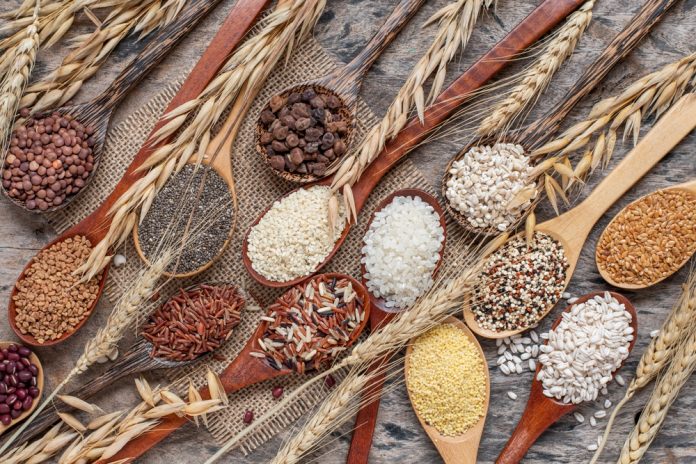When it comes to maintaining a healthy diet, grains are often a hot topic. Whole grains and refined grains are two types of grains that are often discussed in relation to health benefits and potential negative effects. As a dietitian, I have seen many misconceptions and confusion surrounding these two types of grains. In this article, I will provide you with all the information you need to know about grains in your diet, specifically in the context of the Indian diet.
Basics of Grains
Before we dive into the differences between whole and refined grains, it’s important to understand what grains are. Grains are a type of plant that produce edible seeds, such as wheat, rice, oats, and corn. These seeds are harvested and then processed into various forms, such as flour, bread, pasta, and rice.
Whole Grains vs. Refined Grains
The main difference between whole and refined grains lies in their processing. Whole grains are grains that have not been processed or have only been minimally processed, meaning they still contain all parts of the grain – the bran, germ, and endosperm. On the other hand, refined grains have had the bran and germ removed during processing, leaving only the starchy endosperm.
Benefits of Whole Grains
Whole grains are often praised for their numerous health benefits. This is because they contain all parts of the grain, which are rich in nutrients such as fiber, vitamins, minerals, and antioxidants. These nutrients have been linked to various health benefits, including reduced risk of heart disease, type 2 diabetes, and certain types of cancer. Additionally, the fiber in whole grains can help improve digestion and promote feelings of fullness, making them a great addition to a weight loss diet.
Considerations for Refined Grains
Refined grains, on the other hand, have a different impact on health. Since they have had the bran and germ removed, they are lower in nutrients, including fiber. This makes them less filling and can lead to overconsumption, which may contribute to weight gain. Moreover, refined grains have a higher glycemic index, meaning they can cause a rapid spike in blood sugar levels. This can be problematic for individuals with diabetes or those at risk for developing it.
Gluten and FODMAPs
Gluten is a protein found in grains such as wheat, barley, and rye. Many people in India have been avoiding gluten due to the misconception that it is unhealthy. However, for the majority of the population, gluten is not harmful and can even provide health benefits. However, for those with celiac disease or gluten sensitivity, avoiding gluten is necessary to prevent adverse reactions.
Another consideration when it comes to grains is FODMAPs (fermentable oligosaccharides, disaccharides, monosaccharides, and polyols). These are short-chain carbohydrates that are poorly absorbed in the small intestine and can cause digestive issues, particularly in people with irritable bowel syndrome (IBS). Some grains, such as wheat and rye, are high in FODMAPs and may cause discomfort in individuals with IBS. However, not all grains contain high levels of FODMAPs, and there are many options available for those following a low FODMAP diet.
Antinutrients
Antinutrients are compounds found in grains that can interfere with the absorption of certain nutrients. These compounds are often found in the bran and germ of the grain, which are removed during processing of refined grains. This is another reason why whole grains are generally considered healthier than refined grains. However, the levels of antinutrients in whole grains are generally not high enough to cause any significant health issues, and the benefits of the nutrients they contain outweigh any potential negative effects.
Finally, both whole and refined grains can have a place in a healthy diet. Whole grains are generally considered to be the healthier option due to their higher nutrient content, but refined grains can also be included in moderation. It’s important to remember that not all grains are created equal, and some may be more beneficial than others depending on your individual needs and health concerns. Additionally, it’s important to consider cultural and personal preferences when choosing grains to incorporate into your diet.
In the Indian diet, whole grains such as rice, wheat, and oats are staples, while refined grains such as white rice and maida (refined flour) are also commonly consumed. As with any type of food, moderation is key. It’s important to include a variety of grains in your diet to ensure you are getting a wide range of nutrients. If you have any specific health concerns, consult a dietitian who can help you create a personalised meal plan that suits your needs and preferences.








